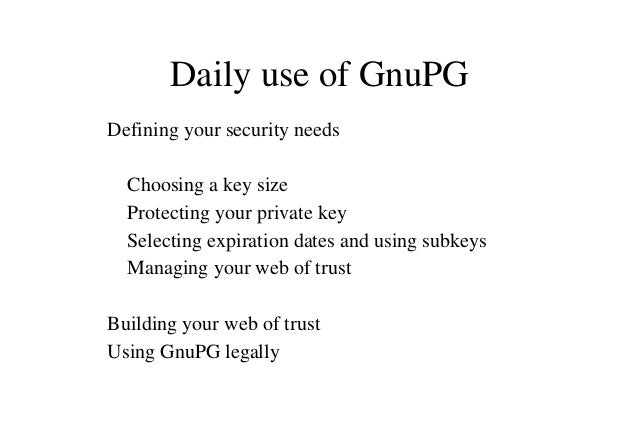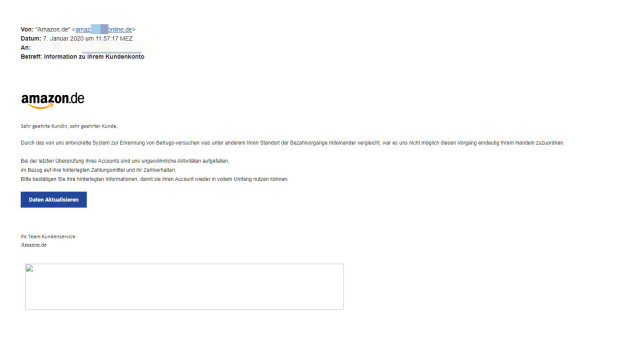
(If I’ve missed anyone from this list, please let me know.)
SunDwarf (storing signatures against keys). natureshadow (improved status handling when smart cards in use). hysterix.is.slackin (symmetric encryption support). eyepulp (additional options for encryption/decryption). ernest0x (improved support for non-ASCII input). Daniel Kahn Gillmor (various improvements which were released in 0.4.1). Kévin Bernard-Allies (handle filename encoding under Windows). Marcel Pörner (handle EXPORTED, EXPORT_RES). Venzen Khaosan (scan_keys functionality). Jannis Leidel (output signature to a file). David Andersen (handle UNEXPECTED during verification). David Noël ( search_keys, send_keys functionality). Michal Niklas (Trust levels for signature verification). Robert Leftwich (handle INV_SGNR, KEY_NOT_CREATED). Kirill Yakovenko (RSA and IDEA support). Yann Leboulanger (handle ERRSIG and NO_PUBKEY while verifying, get subkeys). Dmitry Gladkov (handle KEYEXPIRED when importing). Daniel Folkinshteyn ( recv_keys, handling of subkeys and SIGEXPIRED, KEYEXPIRED. Paul Cunnane (detached signature support). I’ve gratefully incorporated improvements contributed or suggested by: To spawn a subprocess to do the real work. Python’s subprocess module to communicate with the GnuPG executable, which it uses (the original site no longer exists - this link is to the Wayback Machine), and uses The gnupg module is derived from Steve Traugott’s module This was further improved by Richard Jones, and then even further by Steve Traugott. This module is based on an earlier version, GPG.py, written by Andrew Kuchling. To export secret keys, a passphrase must be provided. Ubuntu 16.04 did’t behave helpfully, whereas a GnuPG 2.1.15 executable compiledįrom source on the same machine worked as expected. Our testing, we found, for example, that the 2.1.11 executable shipped with With this configuration, some versions of GnuPG 2.1.x won’t work as expected. 
If that fileĭoes not exist, you will need to create it with that single line. Used by gpg (this is also where the keyring files are kept). By default, passphrases cannot be passed via streams to gpg unless the lineĪllow-loopback-pinentry is added to nf in the home directory.Recent versions of GnuPG (>= 2.1.x) introduce a number of changes:
#Gnu privacy guard download full#
Windows, unless you specifically need 2.0 features - in which case, you may have toĭo a full installation rather than just relying on a couple of files). For this reason, our recommendation is to stick with GnuPG 1.4.x on Note, however, that if you want to use GnuPG 2.0, then this simpleĭeployment approach may not work, because there are more dependent files which you Alternatively, you can specify the full path to the gpgĮxecutable. Uses the gnupg module, or on the system path if that is appropriate for your Invocation will find them - such as the working directory of the application which The files need to be placed in a location such that implicit These files do not need to be placed in system directories, nor are registryĬhanges needed. Only the executable, gpg.exe, and a DLL which it depends on, iconv.dll. The standard installer, on each computer: it is normally sufficient to distribute

On Windows, it is not necessary to perform a full installation of GnuPG, using






 0 kommentar(er)
0 kommentar(er)
